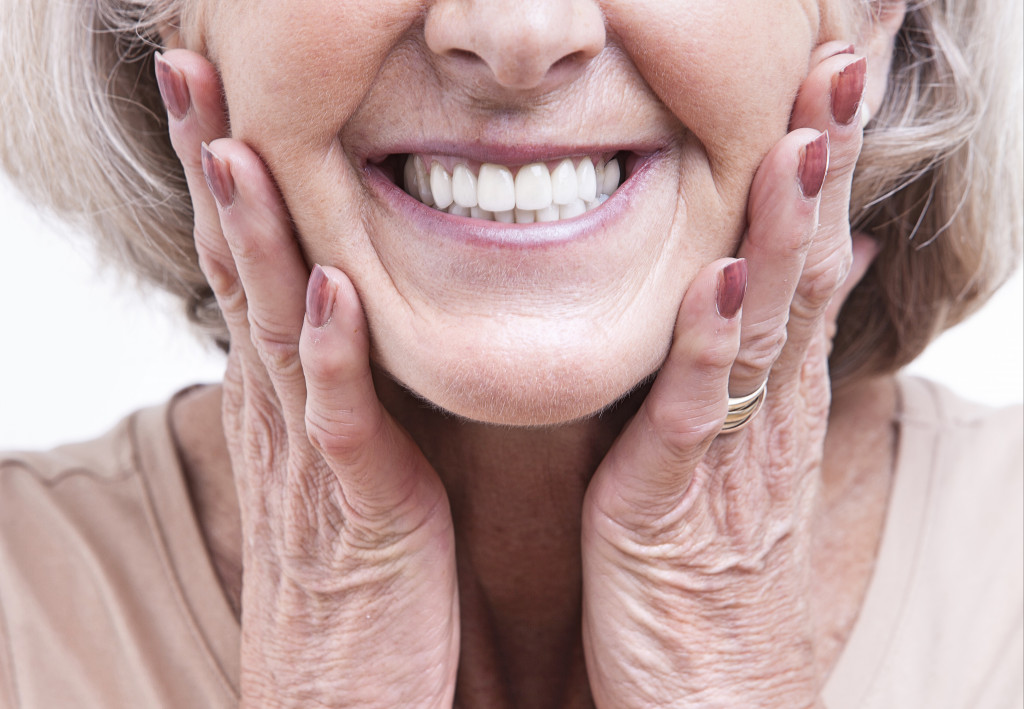- Visit the dentist twice yearly for professional cleanings and advice on oral hygiene.
- Brush and floss teeth regularly to reduce the risk of gingivitis and periodontal disease.
- Use an antibacterial mouthwash daily to combat tooth decay, bad breath, gum disease, and plaque buildup.
- Avoid sugary and acidic foods to minimize the risk of cavities and gum erosion.
Good oral health is essential for any age group but is critical for seniors. Unfortunately, many seniors don’t give their teeth and gums the attention they need. This can lead to many problems, from cavities to gum disease and tooth loss.
Fortunately, there are steps that seniors can take to ensure optimum oral health as they age. From brushing and flossing regularly to visiting the dentist twice a year, these tips will help keep your mouth healthy and looking great!
Visit the dentist twice a year.

For optimal oral health, seniors should visit the dentist twice a year for checkups and treatments. Not only will they be able to clean the teeth and address issues like cavities professionally, but they can also provide advice on proper dentistry techniques such as brushing and flossing.
Consequently, maintaining good dental habits will help prevent a senior citizen from experiencing any problems with gum disease or plaque buildup further down the line. Additionally, visiting the dentist regularly will allow them to facilitate getting necessary teeth replacements or other complex procedures promptly if the need arises.
Ensure proper oral hygiene.
Brush and floss daily
Dentists recommend that seniors brush their teeth twice a day for two minutes each time to remove food particles and plaque that can accumulate in the mouth. This simple activity is critical for ensuring optimal oral health, as regular brushing and flossing will help reduce the risk of gingivitis and periodontal disease, which are especially prevalent among seniors.
Not only does brushing your teeth regularly help to ensure a healthy mouth, but it also improves overall health by reducing the risk of heart attack and stroke. Additionally, good oral hygiene contributes to proper digestion, as essential nutrients are efficiently broken down through proper chewing – an activity only possible with healthy teeth and gums!
Use an antibacterial mouthwash daily.
A daily oral health care routine that includes using an antibacterial mouthwash is essential for seniors to preserve and maintain their optimum level of oral health. Proper use of an antibacterial mouthwash helps combat tooth decay and debris buildup, which can be detrimental to one’s dental hygiene.
Furthermore, using an antibacterial mouthwash provides seniors additional protection against common dental issues, including bad breath, gum disease, and plaque accumulation. This prevention helps to ensure that seniors will not have to endure the pain, discomfort, or expense that can come from dental problems later in life.
Avoid sugary and acidic foods.
For seniors, avoiding sugary and acidic foods as much as possible is essential to maintaining optimal oral health. This is especially important because aging can lead to impaired bodily functions, such as chronic disease and decreased resistance to infection.
When combined with the natural weakening of gums, tooth decay and gum disease are common issues. Limiting sugar and acidic category foods like candies, jams, citrus fruits, and fruit juices helps reduce the amount of acidity presented to teeth enamel, minimizing the risk of cavities while protecting gums from erosion.
Drink plenty of water.
Consuming adequate amounts of water throughout the day is essential for oral health, especially for seniors. Staying hydrated helps keep saliva flowing, protecting teeth and gums from bacteria that could cause cavities or gum disease.
Dehydration has been linked to dry mouth, making it more difficult to swallow food and increasing the risk of serious oral issues such as tooth decay and gum inflammation. Furthermore, water helps flush away food particles that can be caught between teeth, so brushing twice a day becomes even more critical when maintaining adequate hydration levels.
Even mild dehydration can affect overall energy levels and cognitive functions, making it even more critical for seniors to take the necessary steps to ensure their mouths remain hydrated to stay healthy and active.
Quit using any tobacco products.

Quitting smoking or using any other tobacco products is essential for seniors to achieve optimal oral health because the regular cycle of nicotine intake affects not just the respiratory and cardiovascular systems but also increases the risk of gum disease and other severe issues.
Seniors should consider quitting gradually to minimize withdrawal symptoms and make quitting easier. To start, they should reduce the number of cigarettes smoked daily, avoid triggers that encourage smoking, and develop coping skills through relaxation therapy or alternative activities such as exercising.
These are just a few tips seniors can use to ensure optimal oral health as they age. By visiting the dentist twice a year, brushing and flossing daily, using an antibacterial mouthwash, avoiding sugary and acidic foods, drinking plenty of water, and quitting any tobacco products they may be using, seniors can preserve their smiles while staying healthy.






